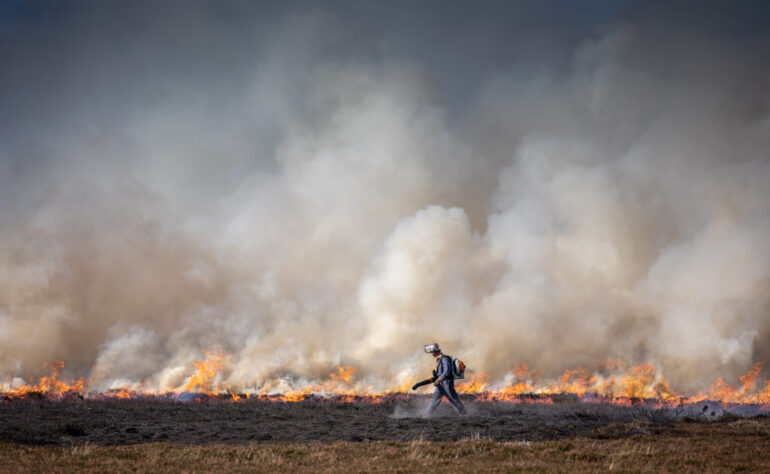The government has introduced a significant extension of its ban on the burning of heather on deep peat, in a move hailed as a landmark step for conservation and climate action.
The Department for Environment, Food and Rural Affairs (Defra) confirmed that the restrictions will now cover 676,628 hectares of upland peat — more than triple the 222,000 hectares previously covered. The expansion brings an area more than five times the size of Greater Manchester under legal safeguards.
Peatlands, the nation’s largest terrestrial carbon stores, hold more carbon than the combined forests of the UK, France and Germany. Yet large areas remain degraded, leaking greenhouse gases rather than locking them away. For decades, intensive management by drainage and burning of heather have stripped these landscapes of biodiversity and left them vulnerable to erosion and fire.
Healthy peat bogs act as vital habitats for vulnerable species such as dunlin, mountain hare and ecologically-important plants including sphagnum moss and sundew. They also help regulate water flow, reducing the risk of flooding downstream, improve water quality and provide resilience against wildfire when waterlogged.
Announcing the extension, Environment Minister Mary Creagh described peatlands as “England’s Amazon rainforest”, saying that “Restricting burning will help us restore and rewet peatlands. These new measures will create resilient peatlands that are naturally protected from wildfires.”
The decision follows a public consultation earlier this year and draws on extensive evidence compiled by Natural England, the government’s conservation regulator. It has been welcomed by campaigners, including Wild Moors, which has long pressed for tougher restrictions on the practice.
A partial ban was first introduced under the previous government in 2021, resulting in a measurable decline in burning and several prosecutions for illegal practices. Ministers now hope the wider ban will further protect peatlands and accelerate the shift towards sustainable upland management.
The next challenge is the large-scale restoration of upland landscapes. Defra said it intends to work with landowners, land managers and conservation organisations to bring more peatlands back to a near-natural state.
Image: Steve Morgan / Greenpeace Unearthed
Ban on burning peat moors extended in boost for wildlife and climate
